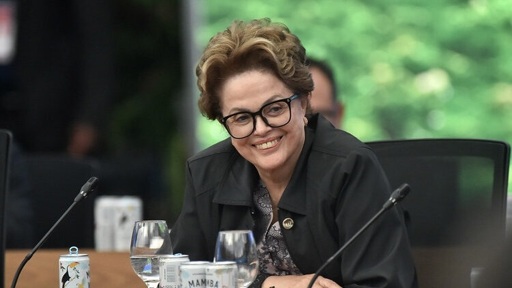The president of the New Development Bank (NDB), Dilma Rousseff, said on November 6 that the institution she leads is ready to finance projects promoting a just transition focused on innovation, environmental protection, and social development. Her remarks came during her speech at the opening session of the Heads of State Summit of the UN Climate Conference (COP), held in Belém, Pará.
As the final speaker of the inaugural plenary, Dilma reminded attendees that the Amazonian city hosting the conference “reminds us, forcefully, that protecting nature and promoting human well-being are inseparable tasks.” According to her, the future of humanity is directly tied to the decisions being made today.
Pointing to the impacts already caused by the climate crisis such as floods, agricultural losses, and food insecurity, Dilma stressed that developing countries are the most affected. “We know that it is the poorest who suffer the most,” she said.
Climate finance in local currencies
In her speech, Dilma argued that climate action must be linked to a broader strategy for social progress, one that includes jobs, innovation, and protection for the most vulnerable. She said the NDB is committed to supporting member countries through financing on more favorable terms.
“For every megawatt of clean energy financed, for every hectare restored, for every community lifted out of environmental vulnerability, we are expressing our commitment to a just transition,” she said. Dilma emphasized that the bank will act as a multilateral partner by expanding climate financing, boosting the diffusion of green technologies, and offering solutions in local currencies.
The emphasis on using national currencies instead of the dollar has been a recurring theme in Dilma’s speeches. In July, she stated that “financing denominated in local currencies helps mitigate exchange-rate risks” and makes credit more accessible for developing countries.
The proposal is part of the bank’s strategy to strengthen the autonomy of Global South nations amid geopolitical instability. Dilma said that “geopolitical conflicts, wars, protectionism, and financial instability” have eroded global trust and hindered the flow of resources and technology precisely when international cooperation is most needed.
In this context, she affirmed that the NDB is “ready to act as a multilateral partner – expanding climate financing, promoting the spread of green technologies, offering solutions in local currencies, and mobilizing the investments and capacities needed for infrastructure aligned with the Paris Agreement criteria.”
Paris Agreement and global order at risk
According to Dilma, defending the Paris Agreement is “a civilizational pact.” She warned that the goal of limiting global warming to 1.5°C is under threat and that the world risks seeing irreversible targets slip away. “The gap is not only numerical – it is existential,” she cautioned.
She criticized the disrespect shown by powerful nations toward the sovereignty of developing countries and reminded that climate efforts must recognize different national contexts. “Some still seem to believe that the law of the strongest should prevail,” she said, defending an order based on shared values and respect for international law.
“Climate change waits for no one and respects no borders,” Dilma declared, stressing that cooperation is the only viable path toward effective collective action.
“History will judge our generation not by the declarations we make, but by the determination with which we act,” she concluded.
BRICS Bank
Created in 2014, the New Development Bank is the main financial structure of the BRICS and has sought to consolidate itself as an alternative to the Bretton Woods model. Under Dilma’s leadership since 2023, the bank has strengthened its international presence through project expansion, bond issuance, and a focus on sustainable development.
The NDB currently has 11 member countries and has financed more than 120 projects totaling around USD 40 billion. Brazil alone accounts for 29 of those projects, with disbursements reaching USD 4 billion.
This article was first published by Brasil de Fato.
The post At COP30, Dilma pledges BRICS Bank financing for a just transition appeared first on Peoples Dispatch.
From Peoples Dispatch via this RSS feed


